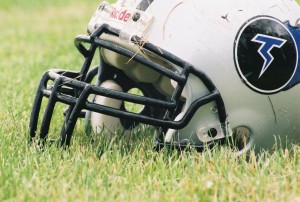
It has been quite an interesting few weeks in the world of sports. It seems the more I turned my focus towards investigating the impact of this world on its participants the more I have noticed just how much is boiling underneath its’ surface undiscovered. For reasons nobody is ready to confess, the world of sports has been vastly unexplored and tragically un-critiqued. Few examples are more evident than the recent headlines exposing the impact of sports related concussions. PBS Frontline released a documentary detailing the impact of concussions on athletes called League of Denial: The NFL’s Concussion Crisis. Headlines have been alive with commentary on this issue and the question of whether or not playing football can have long term health consequences on participants. The NFL is working hard to downplay this latter question, but the answer is unquestionably YES. As is the case with most culture challenging inquiries, it often takes the “hard” sciences years longer to discover what the “soft” sciences have theorized about for years. Fortunately for those of us in the mental health field, the body has a way of communicating the “mysteries” of the mind in data that nobody can ignore.
When I first heard news of the documentary and its’ implications on the game of football I was filled with competing emotions. One part of me was relieved that this information was being released to the general public and that the NFL’s powers that attempted to hide this information from players and the public could no longer do so. On the other hand I was terrified. I love watching football. Heck I even get together with a bunch of guys every Sunday and play tackle football with no pads! I felt sick to my stomach even thinking about not being able to watch my Auburn Tigers on Saturdays in the fall. So was it hard for me to imagine why people are not just afraid of this but maybe even angry at anyone who is pushing the conversation? That answer is No. I would expect this reaction from anyone who loves the game. I can understand this reaction from anyone who is seeing something very important to them begin to slip away. We are seeing the grieving process on a massive scale…and we all know that the first step is denial. With every new study we see more clearly that there is something toxic to what we are playing, coaching, and cheering. There is a price to pay for anyone who longs for glory and fame.
 One of the reasons I began pursuing this work with and for the mental health of athletes was birthed out of this research on concussions and its linkage to the struggles and deaths of several current and former players. It was Junior Seau’s death in particular, and the firestorm of concussion related news that followed, that made me wonder about what else contributed to the decline of such a beloved figure in sports. At the time, my understanding of concussions, CTE (Chronic Traumatic Encephalopathy), and their effects on the health of a person was fairly limited. I had little knowledge of what neurologically was happening to sufferers of CTE and was unaware of what such a brain disease would expedite. At the time I simply found an interest in the fact that someone was finally talking about the dark side of sports and I knew that there was more to the story than just CTE. The repetitive brain injuries incurred in sports like football or boxing can impair and destroy extremely important parts of our brains. Brain trauma deeply effects mental health. However, this is not the only thing happening in athletes that cause their decline.
One of the reasons I began pursuing this work with and for the mental health of athletes was birthed out of this research on concussions and its linkage to the struggles and deaths of several current and former players. It was Junior Seau’s death in particular, and the firestorm of concussion related news that followed, that made me wonder about what else contributed to the decline of such a beloved figure in sports. At the time, my understanding of concussions, CTE (Chronic Traumatic Encephalopathy), and their effects on the health of a person was fairly limited. I had little knowledge of what neurologically was happening to sufferers of CTE and was unaware of what such a brain disease would expedite. At the time I simply found an interest in the fact that someone was finally talking about the dark side of sports and I knew that there was more to the story than just CTE. The repetitive brain injuries incurred in sports like football or boxing can impair and destroy extremely important parts of our brains. Brain trauma deeply effects mental health. However, this is not the only thing happening in athletes that cause their decline.
To get a glimpse of what many athletes are facing, I’ll just include some baseline realities that come with pursuing this dream. There are the effects of years of psychological and emotional abuse, years of having to use pain killers or other substances to ease chronic pain (not everyone but many), the anxiety that accompanies the pressure of performance, and the deep confusion and shame each athlete suffers as they try to come to terms with losing a core sense of identity. I do not know an athlete who has not had to deal with every single one of these listed above…and these psychological, emotional, and physical abuses are just the tip of the iceberg if you look at the spectrum of experiences that come with pursuing competitive sports. But through relationship, particularly through the process of psychotherapy and counseling, an athlete can begin to move towards awareness and healing. What is most troubling about the effects of TBI/concussions/CTE is that it seems to impair the parts of our brain that allow for this other healing to take place. So what you have are a bunch of athletes who have been through an intense amount of trauma and abuse; experiences and effects not unlike what veterans experience after fighting in battle. These alone (and there is much more than just this trauma to deal with) could send any person into depression, mania, and/or crisis, but with CTE a person will find these issues more severe and unavoidable in everyday life. So these players find themselves angrier, more confused, more disconnected in relationship, and less able to deal with the impending storm of losing their identity as an athlete and celebrity.
Over the next few weeks I am going to be looking at several aspects of this discussion on concussions and CTE. The Sporting Psyche will take a look at the effects of Traumatic Brain Injury on our ability to express and mediate our emotions, empathize with others, and be able to change (the ability to be flexible in our identity). I’m also going to take a look at the interesting and telling reactions of NFL players who are now learning about the consequences of sports on their health.
Stay tuned…